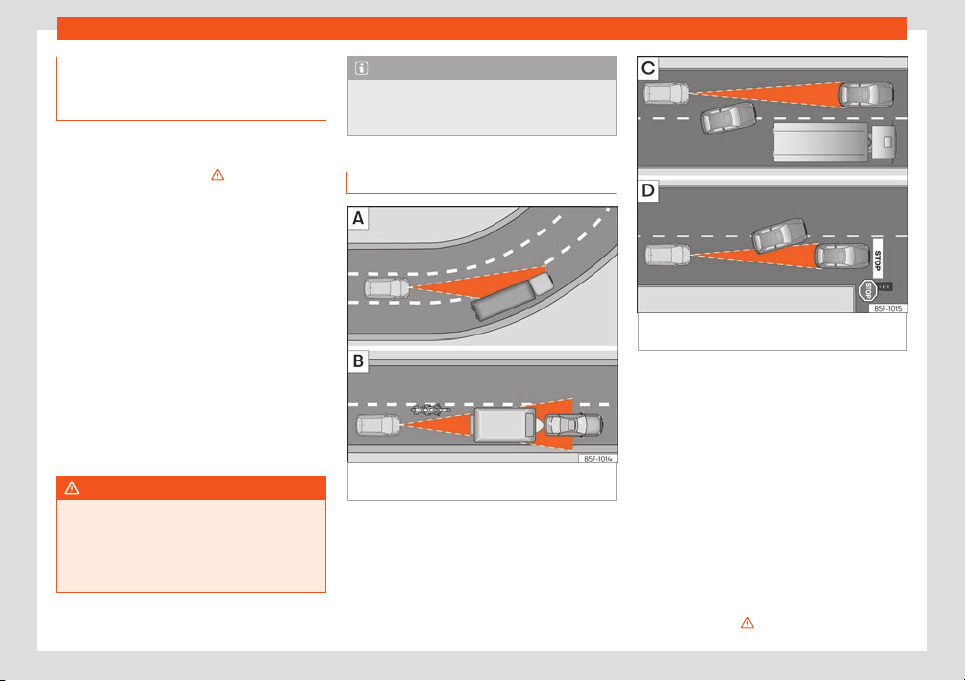Loading ...
Loading ...
Loading ...

Driver assistance systems
Deactivating the Adaptive Cruise
Contr
ol ACC t
empor
arily in certain
situations
In the following situations the Adaptive Cruise
Control (ACC) should be deactiv
ated due to
the system's limitations
›››
:
●
When changing lanes, on tight bends and
roundabouts, in acceler
ation and decelera-
tion lanes on motorways or in sections with
road works to prevent involuntary accelera-
tion to reach the programmed speed.
●
When going through a tunnel, as operation
could be affect
ed.
●
On roads with several lanes, when other ve-
hicles are driving more slowly in the overtak-
ing lane. In this case, slower vehicles will be
overtaken on the right.
●
In case of heavy rain, snow or spray, as the
vehicle in front might not be detected proper-
ly or, in certain circumstances, might not be
detected at all.
WARNING
If the ACC does not switch off in the situa-
tions described, serious accidents and inju-
ries may occur.
●
Alw
ays switch off the ACC in critical sit-
uations.
Note
If you do not switch off the ACC in the
aforementioned sit
uations, you may com-
mit a legal offence.
Special driving situations
Fig. 241
(A) Vehicle on a bend. (B) Motorcyclist
ahead out of r
ange of the r
adar sensor
.
Fig. 242 (C) Vehicle changing lanes. (D) One
v
ehicl
e t
urning and another stationary.
The adaptive cruise control (ACC) has cer-
t
ain physical limit
ations inher
ent in the sys-
tem. For example, certain reactions of the
ACC, in certain circumstances, may be unex-
pected or come late from the driver's point of
view. So pay attention in order to intervene if
necessary.
For example, the following traffic situations
call for the utmost attention:
Starting driving after a stopping phase
(only vehicles with automatic gearbox)
After a stopping phase, the ACC may begin
driving automatically when the vehicle in
front drives off
›››
.
»
269
Loading ...
Loading ...
Loading ...